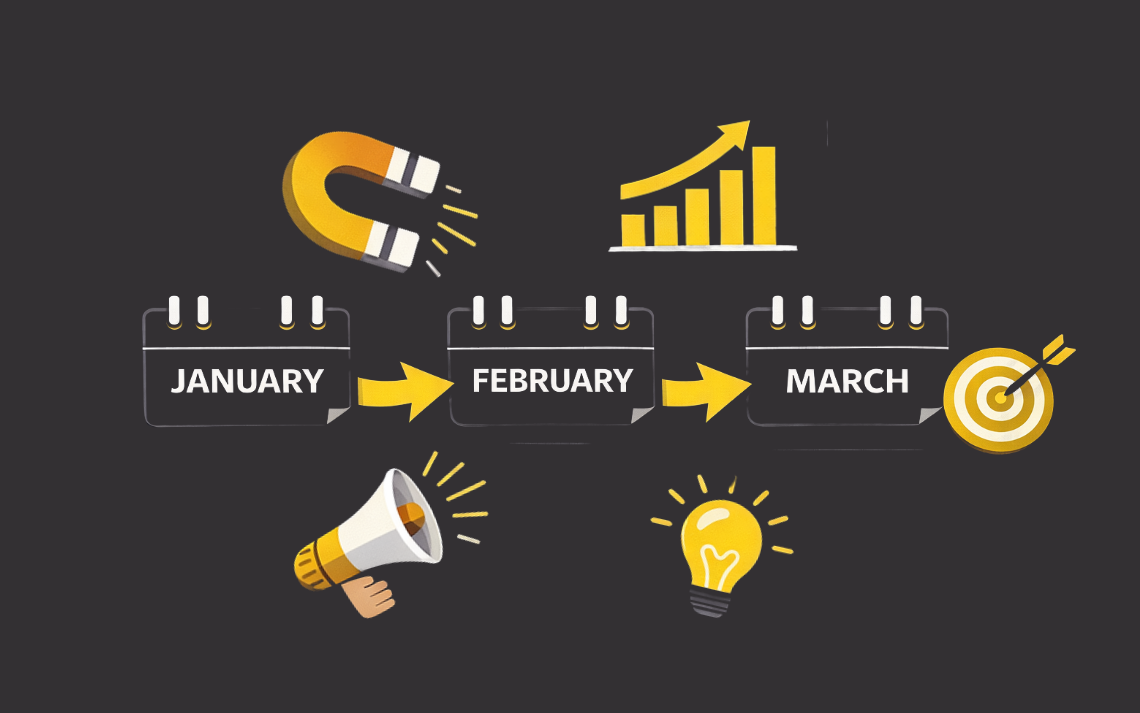Let’s talk about how big the world of sports really is. While the action still takes place on the pitch, field, or court, so much of what drives success now lives behind the scenes, in the data, analytics and digital tools shaping every decision! The global sports industry is worth just over $300 billion, and unlike many traditional sectors, it’s still growing so fast.

Think about everything that makes up “sports” – the games we love, the merchandise we wear, the sports drinks and nutrition bars, the betting apps on phones and of course the incredible teams we cheer for. It’s a massive industry that touches almost everyone in some way. Here in the UK, sports pumped a massive £53.6 billion into our economy in 2024, that’s jobs, tourism and investment that benefits communities across the country!
Sports create connections that last lifetimes and span generations, and that’s exactly why getting the relationship with fans right matters so much. The clubs that truly understand their supporters have an advantage that money can’t buy.
WeDoCRM’s Sports Revenue Model Example
A £50 ticket buyer could become a £5,000+ lifetime supporter through strategic CRM nurturing, and here’s an example of how:
- Acquisition: Converting casual viewers into paying customers
- Retention: Keeping fans engaged during off-seasons and poor performance periods
- Expansion: Growing spend per fan through premium experiences and products
- Advocacy: Turning fans into brand ambassadors who recruit others
Making Money in Sports? It’s All About Relationships!
As sports have gotten bigger and more profitable, teams and leagues need better ways to bring in money.
In the last 20 years, when everything in sports went digital, from ticket sales to watching games online, there was a massive shift in the way teams collected and used information about their fans. Combine that with a great CRM system like Salesforce or HubSpot they help turn fan information into real business opportunities.
Let’s explore how some of the biggest and boldest names in sports are already proving the impact of CRM.
Real Sports Case Studies
Across the sports world, clubs big and small are reaping the benefits of modern CRM systems. For instance, Cardiff Rugby adopted HubSpot CRM to streamline their B2B sponsorship processes. As a result, they significantly reduced administrative overhead while delivering a more seamless experience for their partners.
Similarly, FC Barcelona turned to KORE Software to bring consistency and transparency to their global sponsorship data. This shift has helped them centralise operations and make data-driven decisions across their commercial teams.
Meanwhile, on an even larger scale, clubs like Manchester United and Chelsea FC are leveraging CRM to engage with millions of fans around the world. By using data to personalise content and interactions, they’re not only strengthening loyalty but also driving meaningful revenue growth.
Must-Have CRM Tools for Every Sports Club
What is your tech stack looking like? Here are our recommendations of CRM features and tools your club should be using, no matter your size or sport:
CRM works best when it’s not siloed. Clubs should aim to integrate their CRM system with:
- Ticketing platforms for attendance tracking
- E-commerce systems for merch data
- Marketing automation tools for outreach
- Sponsorship tools for partner reporting
The more connected your tools, the more powerful your CRM becomes, and the better your club can serve every type of stakeholder.
1. Ticketing Platforms: Know Who is in the Seats
Integrating your ticketing system with your CRM system allows you to track who’s attending matches, how often, and what type of ticket they buy. This data is gold for tailoring future offers and identifying trends, like which fans are at risk of dropping off or who’s ready for a season ticket upgrade.
2. E-commerce Systems for Merchandise Data
Merchandise sales are more than just revenue, they’re behaviour signals. Integrating your e-store with your CRM system reveals what products fans buy when they shop, and how that aligns with matchdays or campaigns.
3. Marketing Automation Tools: Get the Right Message to the Right Fan
When CRM is connected to email marketing and automation platforms, you can move from the spray-and-pray emails to tailored journeys. Think birthday messages, matchday reminders, or re-engagement campaigns that feel personal.
4. Sponsorship & Activation Tools: Show Real Value to Partners
Sponsors want more than exposure; they want results. Integrating sponsorship platforms with your CRM system enables you to show real data: How many fans saw a campaign, clicked through, attended an event, or converted? This makes it easier to prove ROI, justify renewals, and build stronger long-term partnerships. It is all there in black and white!
What’s Next: New Tech That’s Changing Sports Marketing
Some Premier League clubs are already using these technologies, and within the next 2-3 years, they’ll become standard across professional sports.
Digital Collectables and Digital Tokens: With Pokémon cards and FIFA Ultimate Team cards still being hugely popular, digital collectables are becoming the next big thing in fan engagement.
Think of them as digital trading cards, items fans can buy, sell, and truly own, often forever. Sports clubs are now launching exclusive digital assets like player cards, match highlights, and limited-edition moments that supporters can collect and trade.
This taps into a familiar thrill – the excitement of opening a pack and hoping to land something rare. It’s the same energy that drives traditional card collecting—just updated for the digital age. And yes, some of our team members are already into this kind of collecting, from Pokémon cards to digital memorabilia!
Smart Stadiums and Augmented Reality (AR): A chance for fans to point their phone at the stadium and see directions to their seat pop up on the screen. Or when they hold it up during a match to see live player stats floating above the pitch. Some clubs are even testing virtual “try-ons” for jerseys using your phone camera.
Smart stadiums are getting sensors everywhere, tracking which food stands are busy, which toilets need cleaning (gross) and even how fans move around the venue. Both of these are just another level of fan interaction and a better experience.
Voice Assistants: “Hey Alexa, when’s the next Manchester United match?” Smart speakers are becoming the new way fans get updates, buy tickets, and even listen to live commentary without touching their phones.
For busy families, this is perfect. Parents can stay updated on their team while helping kids with homework, and everyone can join in asking questions about upcoming fixtures or club news. It’s making following your team effortless and accessible in ways we never had before.
The technology is still early, but clubs that set this up now will have a huge advantage in reaching fans during all those everyday moments when pulling out a phone isn’t practical.
Ready to Transform Your Fan Relationships?
Whether you’re running a Premier League giant or a grassroots club, the principles remain the same: know your fans, engage with them personally, and build relationships that last beyond match day.
Want to see how UK sports organisations are already using CRM to boost revenue and fan loyalty?
Download our free UK Sports CRM Whitepaper – packed with real case studies, practical strategies, and actionable insights you can implement this season.
Inside, you’ll discover:
- How Championship clubs increased season ticket renewals
- The exact CRM workflows driving merchandise sales
- Step-by-step integration guides for your existing systems
- Revenue benchmarks to measure your success
Download the whitepaper for FREE here.
Or get in touch with us – sales@wedocrm.co






